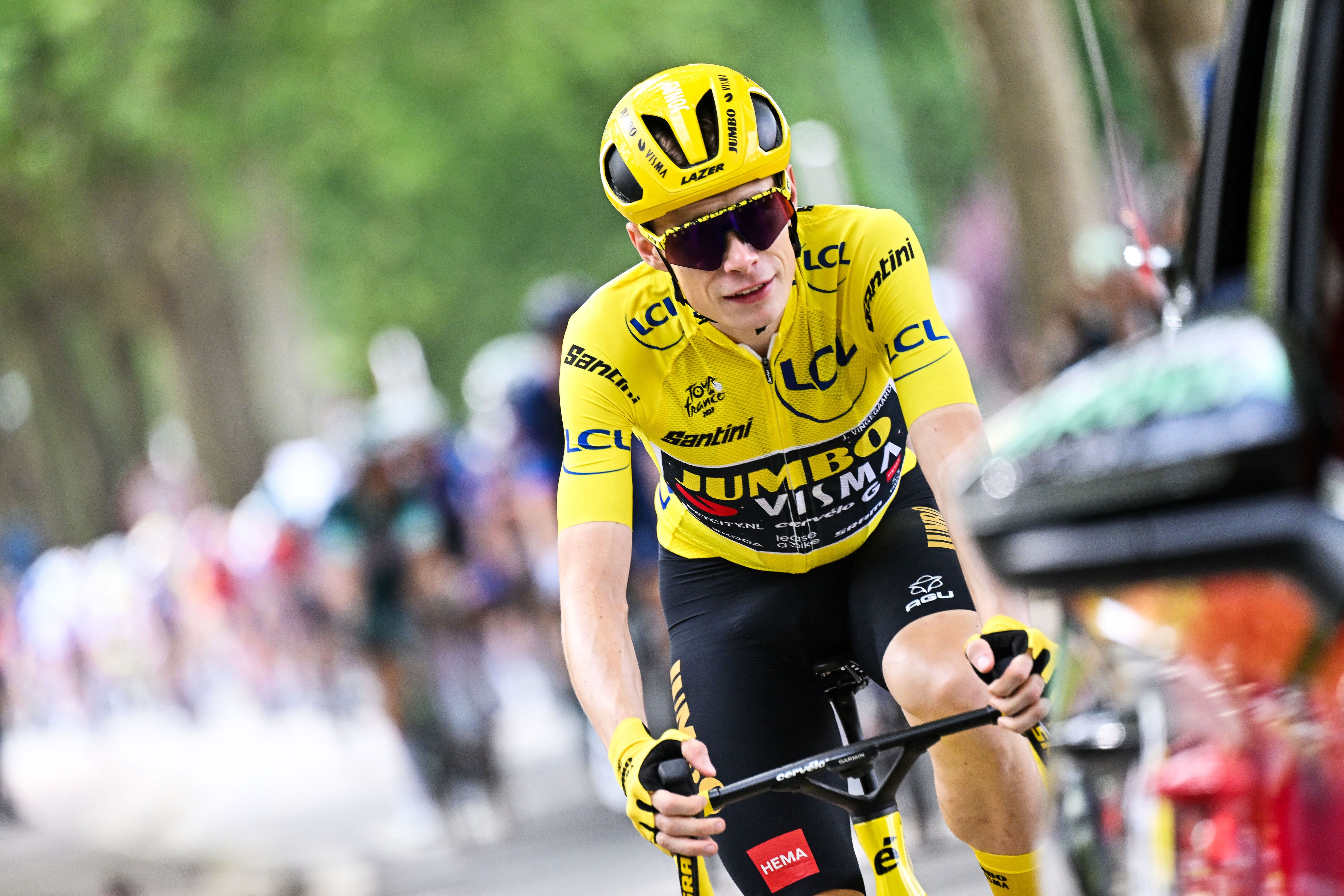
Tour de France winner Jonas Vingegaard has revealed he once missed an anti-doping test.
In an interview with Danish publication Ekstra Bladet, the Jumbo-Visma rider explained that testers came to his home, but his doorbell did not sound.
Vingegaard did not specify when the missed test occurred, beyond saying that he believed it was in 2019; however, he said it was “definitely something I think about afterwards to make sure it doesn’t happen again”.
“I had left my mobile phone in the kitchen, and then our doorbell didn’t work. They tried to call me, and it was clear that it was impossible to answer,” Vingegaard said. “Of course, it’s not cool. But then they came two days later.”
All riders are subject to out-of-competition testing, and must abide by the ‘Whereabouts’ program, in which they report their location to anti-doping authorities for potential tests.
Vingegaard explained that he had undergone around 60 to 70 anti-doping tests in 2023.
“It’s not great to have a missed test hanging over you,” he said, adding that following the Whereabouts protocol was “a hassle” but “not so difficult”.
During July’s Tour de France, Vingegaard was asked a number of times about potential doping.
Speaking to the media after his resounding time trial victory on stage 16, he said: “I can tell you from my heart that I don’t take anything. I don’t take anything I would not give to my daughter, and I would definitely not give her drugs.
“I understand that it’s hard to trust in cycling with the past there has been. Nowadays, everyone is different than it was 20 years ago.”
The Tour winner told Ekstra Bladet this week that he thinks it’s a “good thing” that riders are constantly monitored for banned substances. “It helps in a way,” he said. “All your tests are negative, but in a way, it rings hollow because 20 years ago they were tested too.
"Somehow riders can still cheat, so I don't want to just say – as they did in the old days – that I am the rider who is tested the most. I don't test positive. They did something back then, and people will definitely believe that riders will do it again."
In August, the Dane’s team-mate Michel Hessmann was suspended for returning a positive anti-doping test containing diuretics. The 22-year-old’s B sample confirmed the results of his A sample earlier this month, and he could now face a four-year ban.
Asked about Hessmann, Vingegaard said: “I don’t know how it got into his body. But I think it’s every cyclist’s biggest fear is that you get it through some food or something you eat, and that way test positive without intending to cheat.
“I don’t take anything, and I don’t think the rest of the peloton does either,” he added.







